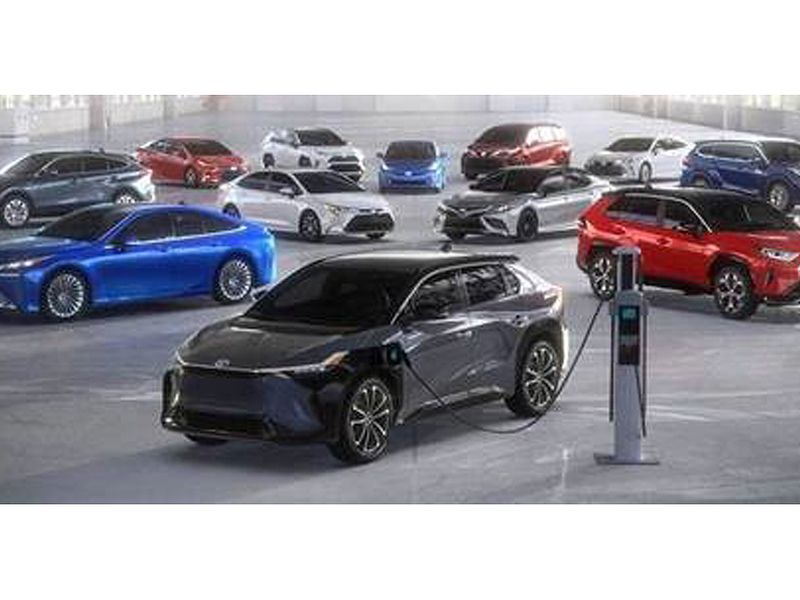
Toyota Motor North America said it will invest $3.4 billion in the U.S. over the next nine years to develop and localize automotive battery production, including those for electric vehicles which would be made locally instead of in Japan.
The U.S. investment — part of a previously announced $13.5 billion program globally by the automaker for battery development and production — will include a $1.29 billion lithium ion battery plant, built in partnership with Toyota Tsusho, that will begin producing batteries by 2025. They will go in upcoming localized EVs as well as hybrids.
Toyota did not provide a location for the proposed plant nor details of its business model but said it would result in the creation of 1,750 new American jobs. The plant’s production would focus first on batteries for hybrids but would then begin to produce battery packs for U.S.-built EVs, a spokesman confirmed.
Toyota also did not say where it plans to build its EVs for North American sale.
“Toyota’s commitment to electrification is about achieving long-term sustainability for the environment, American jobs and consumers,” Toyota Motor North America CEO Ted Ogawa said in a statement Monday. “This investment will help usher in more affordable electrified vehicles for U.S. consumers, significantly reduce carbon emissions, and importantly, create even more American jobs tied to the future of mobility.”
The Japanese automaker’s announcement mirrors battery strategies announced previously by domestic automakers Ford Motor Co. and General Motors, as well as EV manufacturing localization strategies by Volkswagen.
This year, Toyota Motor North America executives had indicated that the automaker planned to consolidate EV production in Japan, including those destined to be sold in North America.
In April, Toyota introduced the bZ4X, a compact EV crossover concept that it said would go on sale in the U.S. next year. A Lexus version, the LF-Z, is also in the works and due in dealerships in late 2022, as is a similar-sized crossover that Toyota will build for partner Subaru called the Solterra, which also is scheduled to arrive in the second half of 2022.
Toyota, which pioneered hybrid technology in the 1990s with the Prius, has focused on a decarbonization strategy that relies primarily on expanding its stable of hybrids and plug-in hybrids by 2025. In addition, the automaker said it plans to produce 15 EV models globally, including seven Toyota bZ models.

